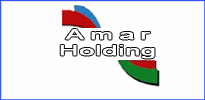Canadian Company to Help Finance Zinc Supplements for Children 2011-07-16
Canadian Company to Help Finance Zinc Supplements for Children
A Canadian zinc mining company and a Canadian nonprofit devoted to getting vitamins and minerals to children in poor countries recently joined forces to create a new partnership, the Zinc Alliance for Child Health.
Zinc, the metal used to line the bars of traditional Paris bistros, is a mineral crucial in trace amounts to children’s growth, brain development and immune system functions. It is found in red meat, beans and peanuts, but many malnourished children eat almost nothing but cornmeal, cassava or other starches.
Teck Resources, a mining company with headquarters in Vancouver, announced that it would give $5.2 million to help six million children in Senegal get zinc supplements. Its partners in the new alliance are the Micronutrient Initiative, a nonprofit group based in Ottawa, and the Canadian International Development Agency, through which Canada channels foreign aid.
A 2006 World Health Organization review of nutrition studies concluded that zinc supplements help save the lives of children with severe diarrhea when given in conjunction with oral rehydration solution. Zinc also helped save severely underweight children.
It was less clear whether children benefited from getting routine zinc supplements, , but many poor children suffer from intestinal illnesses that make it hard to absorb the mineral. The W.H.O. said more study was needed into the best forms to offer supplements.
“The challenge the world faces is not producing more zinc,” said Don Lindsay, president of Teck Resources, pictured above. “It’s getting zinc into the diets of people suffering from zinc deficiency.”
This article has been revised to reflect the following correction:
Correction: July 7, 2011
The Global Update report on Tuesday, about a program to get vitamins and minerals to children in poor countries, using information from Teck Resources, misstated the amount the company is donating toward zinc supplements for Senegalese children. It is $5.2 million, not $6.2 million.



























